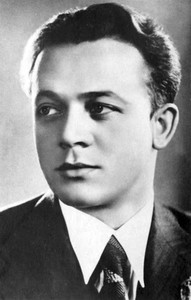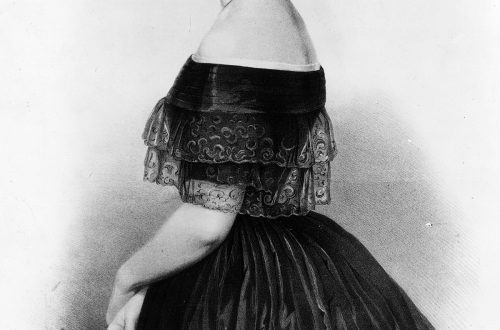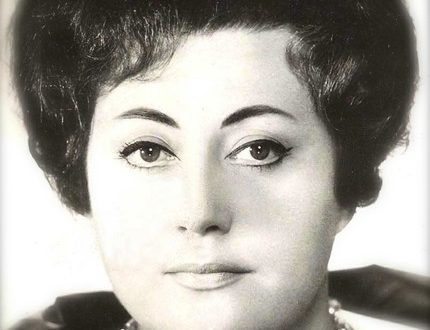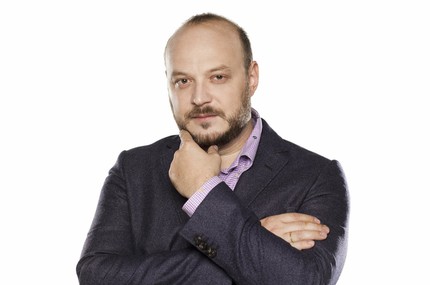
Sergey Yakovlevich Lemeshev |
Sergei Lemeshev

At the Bolshoi Theater, Sergei Yakovlevich often performed on stage when Boris Emmanuilovich Khaikin stood at the console. Here is what the conductor said about his partner: “I met and performed with many outstanding artists of different generations. But among them there is only one whom I especially love – and not only as a fellow artist, but above all as an artist who illuminates with happiness! This is Sergei Yakovlevich Lemeshev. His deep art, precious fusion of voice and high skill, the result of great and hard work – all this bears the stamp of wise simplicity and immediacy, penetrating your heart, touching the innermost strings. Wherever there is a poster announcing Lemeshev’s concert, it is known for sure that the hall will be overcrowded and electrified! And so for fifty years. When we performed together, I, standing at the conductor’s stand, could not deny myself the pleasure of stealthily looking into the side boxes, accessible to my eyes. And I saw how, under the influence of high artistic inspiration, the faces of the listeners were animated.
Sergei Yakovlevich Lemeshev was born on July 10, 1902 in the village of Staroe Knyazevo, Tver province, into a poor peasant family.
The mother alone had to pull three children, since the father went to the city to work. Already from the age of eight or nine, Sergei helped his mother as much as he could: he was hired to thresh bread or guard horses at night. Much more he liked to fish and pick mushrooms: “I liked to go into the forest alone. Only here, in the company of quiet friendly birch trees, did I dare to sing. Songs have long excited my soul, but children were not supposed to sing in the village in front of adults. I sang mostly sad songs. I was captured in them by touching words telling about loneliness, unrequited love. And although far from all of this was clear to me, a bitter feeling seized me, probably under the influence of the expressive beauty of the sad tune … “
In the spring of 1914, according to the village tradition, Sergei went to the city to shoemaker, but soon the First World War began and he returned to the village.
After the October Revolution, a craft school for rural youth was organized in the village, led by civil engineer Nikolai Aleksandrovich Kvashnin. He was a real enthusiast-educator, a passionate theater-goer and music lover. With him, Sergei began to sing, studied musical notation. Then he learned the first opera aria – Lensky’s aria from Tchaikovsky’s opera Eugene Onegin.
There was a fateful event in Lemeshev’s life. The famous musicologist E.A. Troshev:
“On a cold December morning (1919. – Approx. Aut.), A village boy appeared at the workers’ club named after the Third International. Dressed in a short wadded jacket, felt boots and paper trousers, he looked quite young: indeed, he was only seventeen years old… Smiling shyly, the young man asked to be listened to:
“You have a concert today,” he said, “I would like to perform at it.
— What can you do? asked the head of the club.
“Sing,” came the reply. – Here is my repertoire: Russian songs, arias by Lensky, Nadir, Levko.
On the same evening, the newly-minted artist performed at a club concert. The boy who walked 48 versts through the frost to sing Lensky’s aria in the club vividly interested the listeners… Levko, Nadir, Russian songs followed Lensky… The singer’s entire repertoire had already been exhausted, but the audience still did not let him leave the stage. The triumph was unexpected and complete! Applause, congratulations, handshakes – everything merged for the young man into one solemn thought: “I will be a singer!”
However, at the persuasion of a friend, he entered the cavalry school to study. But the irrepressible craving for art, for singing, remained. In 1921, Lemeshev passed the entrance exams to the Moscow Conservatory. Five hundred applications have been submitted for twenty-five vacancies of the vocal faculty! But the young village boy conquers the strict selection committee with the ardor and natural beauty of his voice. Sergei was taken into his class by Professor Nazariy Grigoryevich Raisky, a well-known vocal teacher, friend of S.I. Taneeva.
The art of singing was difficult for Lemeshev: “I thought that learning to sing was simple and pleasant, but it turned out to be so tricky that it was almost impossible to master it. I couldn’t figure out how to sing correctly! Either I lost my breath and strained the muscles of my throat, then my tongue began to interfere. And yet I was in love with my future profession of a singer, which seemed to me the best in the world.
In 1925, Lemeshev graduated from the conservatory – at the exam, he sang the part of Vaudemont (from Tchaikovsky’s opera Iolanta) and Lensky.
“After classes at the conservatory,” writes Lemeshev, “I was accepted into the Stanislavsky studio. Under the direct guidance of the great master of the Russian stage, I began to study my first role – Lensky. Needless to say, in that truly creative atmosphere that surrounded Konstantin Sergeevich, or rather, which he himself created, no one could have thought of imitation, of mechanical copying of someone else’s image. Full of youthful zeal, parting words from Stanislavsky, encouraged by his friendly attention and care, we began to study Tchaikovsky’s clavier and Pushkin’s novel. Of course, I knew all Pushkin’s characterization of Lensky, as well as the whole novel, by heart and, mentally repeating it, constantly evoked in my imagination, in my feelings, the feeling of the image of the young poet.
After graduating from the conservatory, the young singer performed in Sverdlovsk, Harbin, Tbilisi. Alexander Stepanovich Pirogov, who once arrived in the capital of Georgia, having heard Lemeshev, resolutely advised him to try his hand at the Bolshoi Theater again, which he did.
“In the spring of 1931, Lemeshev made his debut at the Bolshoi Theater,” writes M.L. Lvov. – For the debut, he chose the operas “The Snow Maiden” and “Lakme”. In contrast to the part of Gerald, the part of Berendey was, as it were, created for a young singer, with a clearly expressed lyrical sound and naturally with a free upper register. The party requires a transparent sound, a clear voice. The juicy cantilena of the cello accompanying the aria well supports the singer’s smooth and steady breathing, as if reaching for the aching cello. Lemeshev successfully sang Berendey. The debut in the “Snegurochka” has already decided the issue of his enrollment in the troupe. The performance at Lakma did not change the positive impression and the decision made by the management.”
Very soon the name of the new soloist of the Bolshoi Theater became widely known. Lemeshev’s admirers made up a whole army, selflessly devoted to their idol. The popularity of the artist increased even more after he played the role of the driver Petya Govorkov in the film Musical History. A wonderful film, and, of course, the participation of the famous singer contributed a lot to its success.
Lemeshev was gifted with a voice of exceptional beauty and a unique timbre. But only on this foundation, he would hardly have reached such notable heights. He is first and foremost an artist. Internal spiritual wealth and allowed him to reach the forefront of vocal art. In this sense, his statement is typical: “A person will go on stage, and you think: oh, what a wonderful voice! But here he sang two or three romances, and it becomes boring! Why? Yes, because there is no inner light in him, the person himself is uninteresting, untalented, but only God gave him a voice. And it happens the other way around: the artist’s voice seems to be mediocre, but then he said something in a special way, in his own way, and the familiar romance suddenly sparkled, sparkled with new intonations. You listen to such a singer with pleasure, because he has something to say. That’s the main thing.”
And in the art of Lemeshev, brilliant vocal abilities and deep content of the creative nature were happily combined. He had something to say to people.
For twenty-five years on the stage of the Bolshoi Theater, Lemeshev sang many parts in the works of Russian and Western European classics. How music lovers aspired to get to the performance when he sang the Duke in Rigoletto, Alfred in La Traviata, Rudolf in La Boheme, Romeo in Romeo and Juliet, Faust, Werther, and also Berendey in The Snow Maiden, Levko in “May Night”, Vladimir Igorevich in “Prince Igor” and Almaviva in “The Barber of Seville” … The singer invariably captivated the audience with a beautiful, soulful timbre with his voice, emotional penetration, charm.
But Lemeshev also has the most beloved and most successful role – this is Lensky. He performed the part from “Eugene Onegin” over 500 times. It surprisingly corresponded to the whole poetic image of our illustrious tenor. Here his vocal and stage charm, heartfelt sincerity, unsophisticated clarity completely captivated the audience.
Our famous singer Lyudmila Zykina says: “First of all, Sergey Yakovlevich entered the consciousness of the people of my generation with the unique image of Lensky from Tchaikovsky’s opera “Eugene Onegin” in his sincerity and purity. His Lensky is an open and sincere nature, incorporating the characteristic features of the Russian national character. This role became the content of his entire creative life, sounding like a majestic apotheosis at the recent anniversary of the singer at the Bolshoi Theater, who for many years applauded his triumphs.
With a wonderful opera singer, the audience regularly met in concert halls. His programs were varied, but most often he turned to the Russian classics, finding and discovering unexplored beauty in it. Complaining about the certain limitations of the theatrical repertoire, the artist emphasized that on the concert stage he was his own master and therefore could choose the repertoire solely at his own discretion. “I never took anything that was beyond my capacity. By the way, concerts helped me in opera work. One hundred romances by Tchaikovsky, which I sang in a cycle of five concerts, became a springboard for my Romeo – a very difficult part. Finally, Lemeshev sang Russian folk songs very often. And how he sang – sincerely, touchingly, with a truly national scale. Heartiness is what distinguished the artist in the first place when he performed folk melodies.
After the end of his career as a singer, Sergei Yakovlevich in 1959-1962 led the Opera Studio at the Moscow Conservatory.
Lemeshev died on June 26, 1977.





